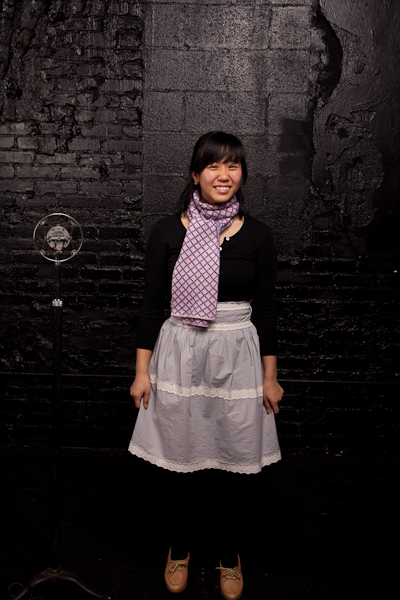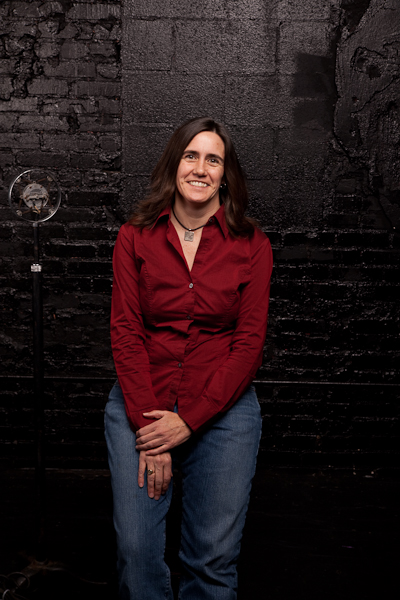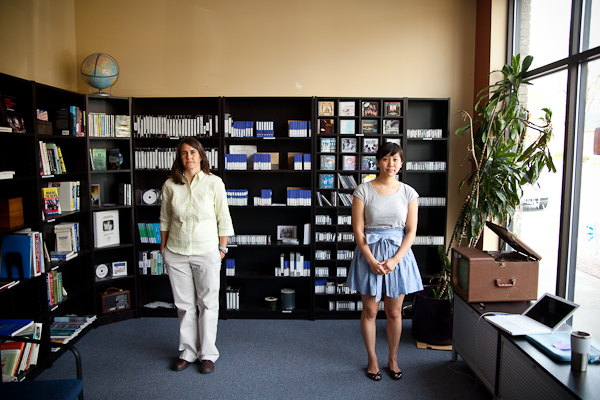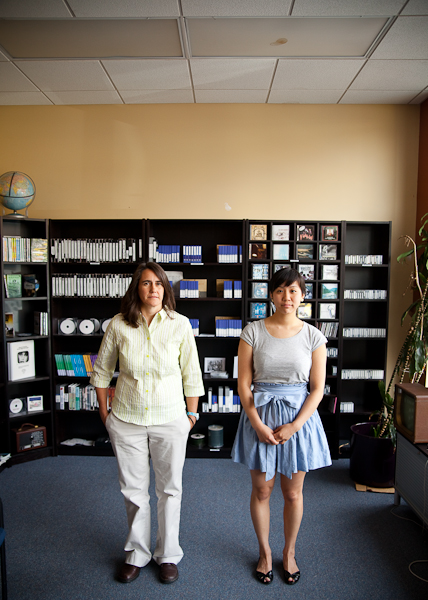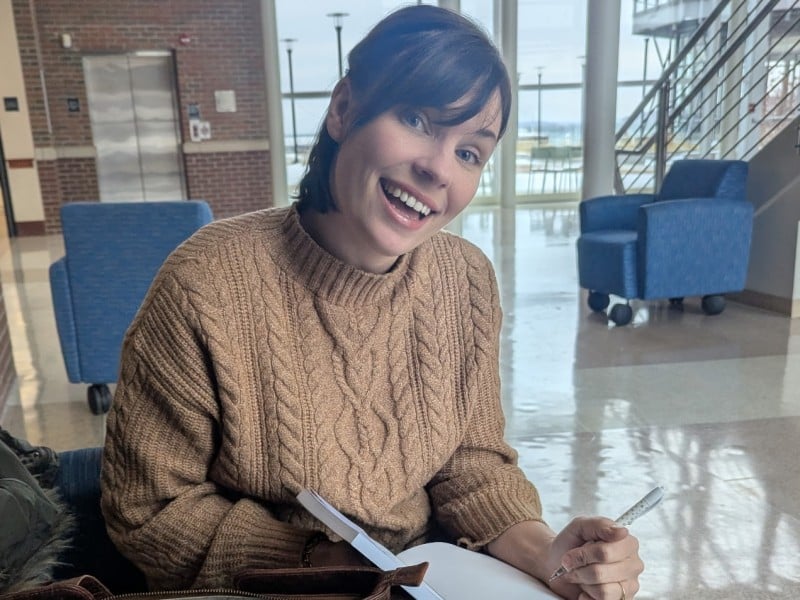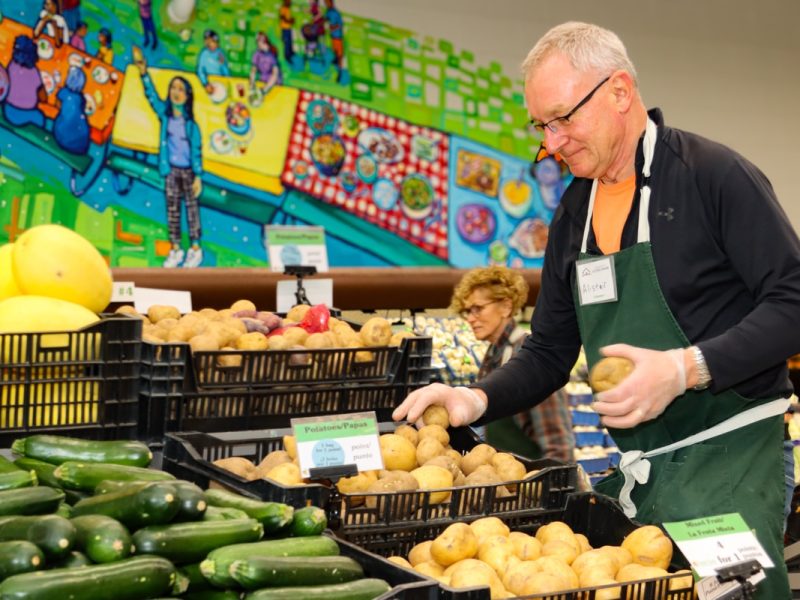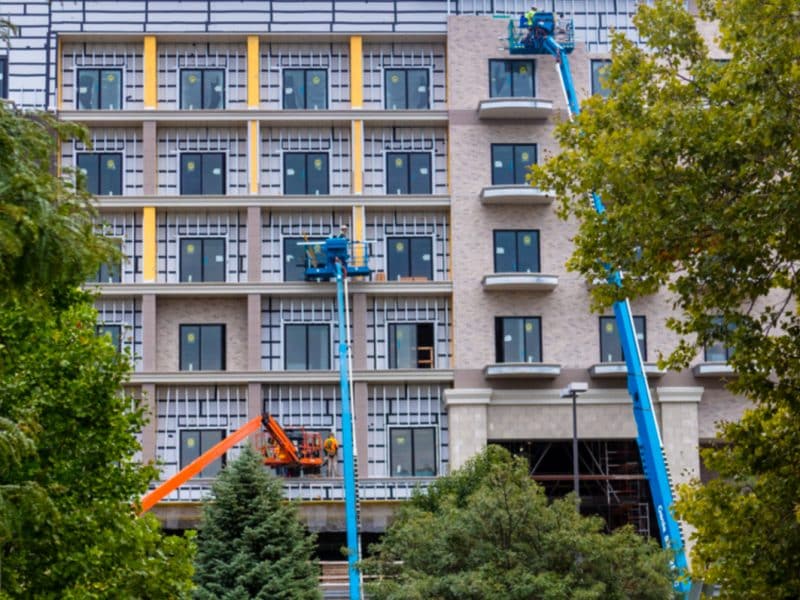Catalyst Radio a Voice for Change in Metro Grand Rapids
The room they use as a studio may be small, but Linda Gellasch and Denise Cheng cover a huge territory via the airwaves with Catalyst Radio. How two women help to give non-profits a leg up during tough times.
It’s the 10,000-watt voice in metro Grand Rapids for those who can’t afford the radio time, and — true to its name — it encourages change in the community while remaining a constant.
Catalyst Radio on the WYCE 88.1 FM community radio station lends an electronic hand to non-profit organizations throughout the metropolitan region, an underserved, yet deserving topic. And now that hand has a little further reach as it covers the beat in conjunction with The Rapidian, an online citizen journalist newspaper.
For a half hour each Friday at noon, WYCE departs from its eclectic music-based programming to make way for program host Linda Gellasch and Catalyst Radio. And for the past five and a half years, Gellasch has volunteered her time to help local do-gooders and visiting philanthropists amplify their messages across the airwaves.
“It gives nonprofit organizations an opportunity to be heard and a platform that isn’t always available to them,” says Gellasch, 47, who estimates the show has featured more than 100 non-profit organizations since its inception. “We put the spotlight on individual nonprofits and it’s a time when they can speak freely about their mission and events.”
Switching it On
The nondescript 10- by 10-foot room that serves as the studio and nerve center of Catalyst Radio doesn’t look inspiring: bare walls, a computer, a silk plant, an electronic keyboard and a round table flanked by several chairs and a pair of microphones. But when Gellasch and Denise Cheng enter the room, switch on the mics and begin bantering over the state of media, the room buzzes with potential.
Cheng, citizen journalism coordinator for The Rapidian, joined Catalyst Radio last month when the online newspaper began providing content to listeners centering on hyperlocal news. Both the radio station and newspaper are programs of a 501(c)(3) nonprofit organization, the Grand Rapids Community Media Center.
The show tapes each Tuesday, and is usually completed in a single take. After about five hours of research, recording and post-production by the small staff, the show is ready for the airwaves.
With its studio in the The Annex Wealthy Street location of the media center, each program kicks off with a discussion between Gellasch and Cheng about current affairs, with a focus on media literacy and free speech issues.
They then move on to the “core element” of the show, 15-minute interviews with nonprofit leaders and social cause champions, finally closing with a community events calendar. Through the new partnership, the program will now integrate Rapidian content and interviews with citizen journalists into the guest interview segment.
It’s Not Recycling
“We’re not just rehashing Rapidian articles, but we’ll delve more into interviews inspired by The Rapidian,” says Cheng, 24, who held a similar citizen journalism role in Portland, Ore. before coming here to take the AmeriCorps VISTA position with The Rapidian. “We’ll get more in depth and bring the story subjects into the recording room.”
Gellasch is optimistic about the new partnership and the program’s continuing role in educating Grand Rapids’ media consumers. “Catalyst Radio has always been focused on the whole media literacy issue and how it affects information and news,” says Gellasch, who also serves as the director of operations and finance for the media center and the administrator for The Rapidian. “But our connection to The Rapidian creates a new, focused Catalyst.”
Guests of Catalyst Radio have ranged from author and activist John Ross, who has traveled the world extensively to document social change movements in the United States, Mexico, Iraq and Palestine, to Ray McGovern, a 27-year veteran of the CIA, to seven-time guest Kym Spring, who is active in several local labor, environmental, housing and human rights organizations.
The first show with The Rapidian tie-in aired April 2, and featured an interview with two citizen reporters who collaborated on a series of articles focusing on the Heartside neighborhood. Gellasch and Cheng interviewed the journalists to learn how they worked together to create a multipart series, the feedback they received and how to collaborate as a citizen journalist.
“Listeners said they liked learning what community members are doing to fill the news and information void on the local side,” says Gellasch, who graduated from Texas State University with a bachelor’s degree in editorial journalism. She moved to Grand Rapids from Austin, Texas in 1997 to take a position as the publications manager for Ferris State University. While she was working at the Boys & Girls Club of Grand Rapids Youth Commonwealth in 2001, the former executive director of the media center asked if she’d like to join the GRCMC staff.
Local, Local, Local
In the next few weeks, Catalyst Radio will feature interviews with Rapidian journalists speaking about farmers markets and local food, the Boys and Girls Clubs of Grand Rapids Youth Commonwealth and the Grand Rapids HipHop Coalition.
While The Rapidian is a vehicle to bring free speech and local news to the community, Catalyst Radio pops open the hood to explore the engine driving the vehicle.
“One talks about the situation out there and the other provides the platform where local news can be reported,” Gellasch says. “Catalyst is not an attempt to provide news, we talk about issues that are already stories. This partnership just allows us to narrow the focus and tie things together.”
Catalyst Radio flies under the radar, eschewing the gimmicks and stunts that often define talk radio shows in favor more progressive and thought-provoking content. Gellasch and Cheng are passionate about media literacy, delving into subjects such as journalistic transparency, media consolidation and other hot topics in professional journalism circles. They stress that media literacy has become particularly important in today’s rapidly changing media landscape.
Cheng, who grew up in Sunnyvale, Calif. and graduated from Miami University of Ohio’s Western Program with a focus on global and cultural journalism, says that although the state of journalism is hashed and rehashed in media circles, the public isn’t always cognizant of the implications.
“Professional journalists discuss new media and the changing role of media amongst ourselves, but the public isn’t always aware of or exposed to it,” she explains. “But this gives us an outlet to bring the discussion to new areas.”
Cheng thinks it’s important for the public to understand the rapid changes that are happening behind the scenes, and how the changes will affect the future of news delivery. “We’re using Catalyst Radio as a way to educate people on things that are happening and how what they consume is changing,” she says.
Gellasch hopes that by digging below the surface, Catalyst Radio can serve not only as a platform for education, but also as a springboard for civic involvement and change.
“If people understand where the information they are hearing is coming from and really look at the source, we’ll have a more informed citizenry,” Gellasch says. “We’re trying to make a better informed consumer.”
Kelly Quintanilla is a freelance writer born, raised and living in Grand Rapids.

